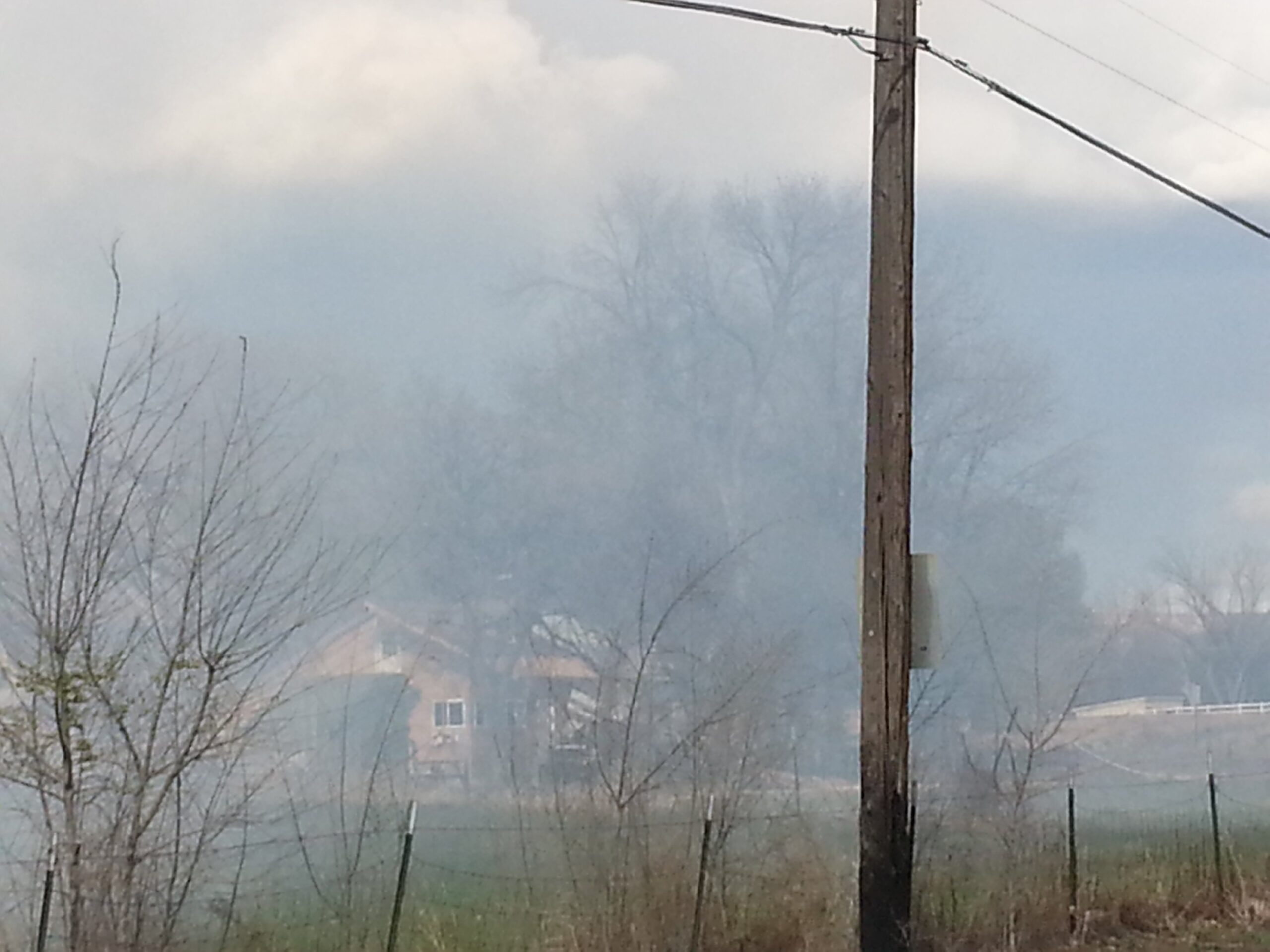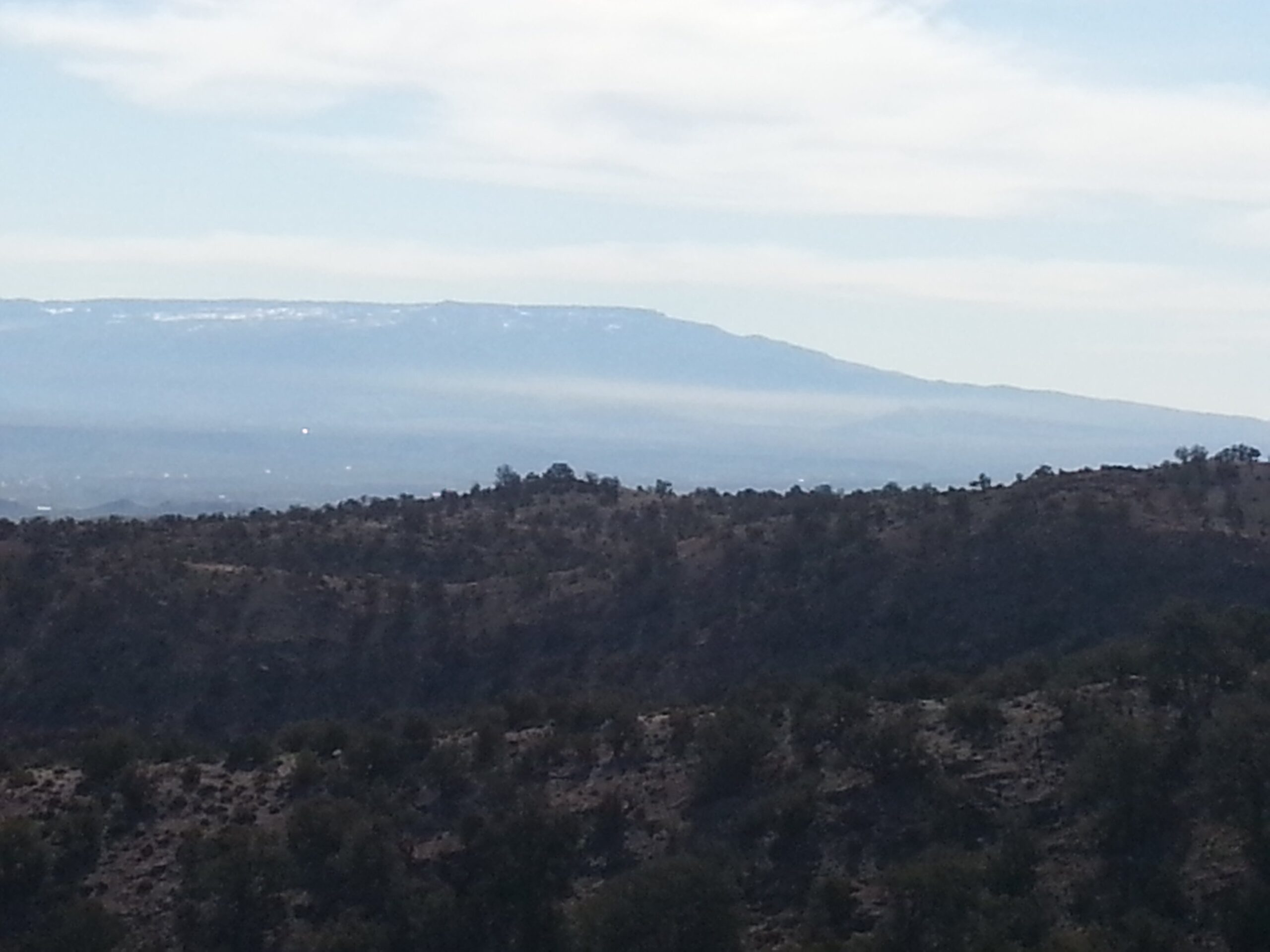
It’s another beautiful fall day in Mesa County, but it’s also the time when rabbitbrush, ragweed, juniper and other potent local allergens fill the air with pollen, making fall miserable for thousands of people who suffer from allergies. Add to this mix the clouds of black smoke from open burning that envelope entire neighborhoods, and beautiful fall days turn into days of utter despair for many western Colorado residents.
With a wide variety of retirement housing and the biggest medical center between Denver and Salt Lake, Grand Junction is a mecca for retirees. But many retirees who settle here have some degree of heart or lung disease, making them more susceptible to breathing problems and medical emergencies caused by exposure to smoke from open burning. Even healthy people who have never had a heart or lung diagnosis during their lifetime can count on losing up to 25 percent of their lung function as they age, making them more susceptible to health problems from air pollution.
A surprising number of people in Mesa County have respiratory or cardiac diseases, or use supplemental oxygen at home for heart or lung disease. In 2009, 7.5 percent of Mesa County children ages 1-14 reported having asthma, and 9.4 percent of adults in Mesa County reported having asthma during 2008-2010. In 2011, fully 58 people per 100,000 in Mesa County died from chronic lower respiratory diseases like emphysema and chronic bronchitis, and 159 people per 100,000 died from cardiovascular disease. Both of these disease states are exacerbated by exposure to air filled with smoke.
Open Burning Causes More Problems and Expense than it Solves
Contrary to popular local belief, open burning doesn’t get rid of yard or farm waste. It just changes the waste into another form — smoke — and pumps it into the air for everyone else to deal with. With burn permits ranging from just $5 to $15 per season locally (depending on the jurisdiction) the pricing of burn permits doesn’t come close covering the cost of putting out even one runaway fire caused by careless burning. From the frequent stench of the night time air, it’s also obvious that lots of people aren’t even bothering to buy permits, and instead burn illegally after dark. An obvious step cities can take to cover the cost of putting out out-of-control fires from open burning and reduce the amount of burning taking place would be to simply raise the ridiculously low price of the burn permits — something that hasn’t been done in many years.
Without doubt, Mesa County’s burn seasons are contributing to our area’s growing air pollution problems. In 2006, the Denver Post wrote that the haze in Grand Junction’s air “contains a brew of exhaust-pipe toxins such as formaldehyde, toluene, arsenic and manganese that, on average, are as high as — and sometimes higher than — Denver’s.” This is the case even though “the Denver metro area has 30 times more traffic than Grand Junction and 2.1 million more registered vehicles than Mesa County. Also, metro Denver has 2.6 million more people than Grand Junction.” If the problem gets worse, Mesa County will soon become an EPA “non-attainment” area, which can lead to residents having to “smog” their cars and participate in other federally-mandated programs to reduce air pollution emissions.
The Old Days are Over

There was a time when Mesa County was predominantly a rural, agricultural area, and during that time, open burning served a useful purpose. But times have changed. Over the last 30 years, local governments have encouraged residential development in former agricultural areas, and Mesa County has become a much more residential, urbanized area filled with new subdivisions and broader streets. In this context, wood burning and open burning have started posing distinct health and quality-of-life threats for residents.
It’s time to address these threats.
If you are negatively affected by wood burning and open burning in Mesa County and want to join efforts to better regulate or end the practice, come to a public Air Quality Forum, “What’s in our Air?,” tomorrow, Monday, September 22, at 7:00 p.m. Whitman Hall, 248 S. 4th Street in downtown Grand Junction, put on by Citizens for Clean Air and the League of Women Voters.
